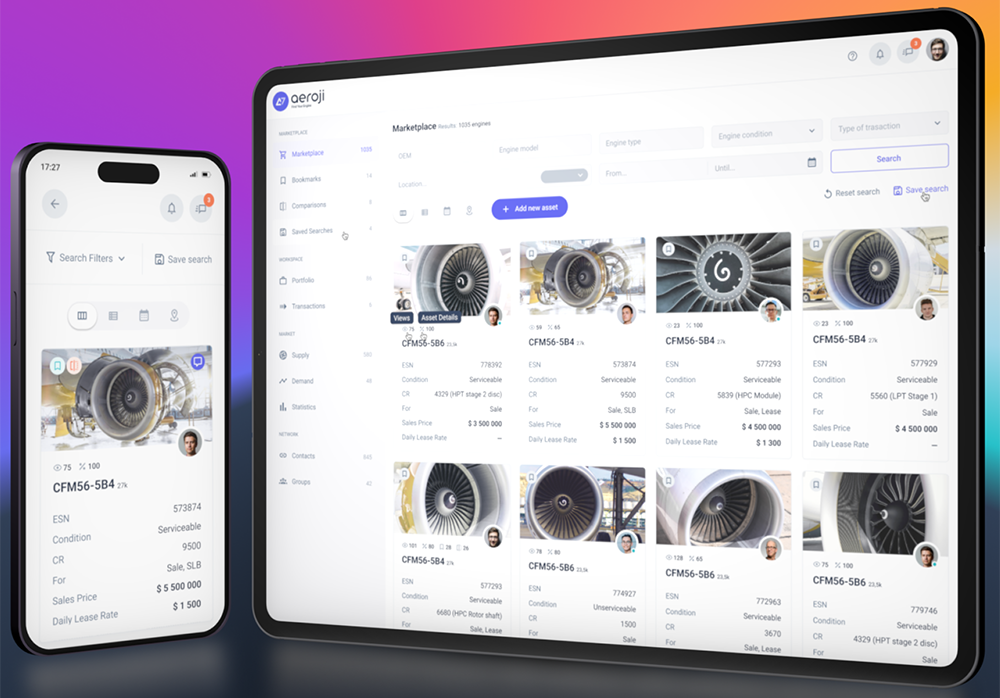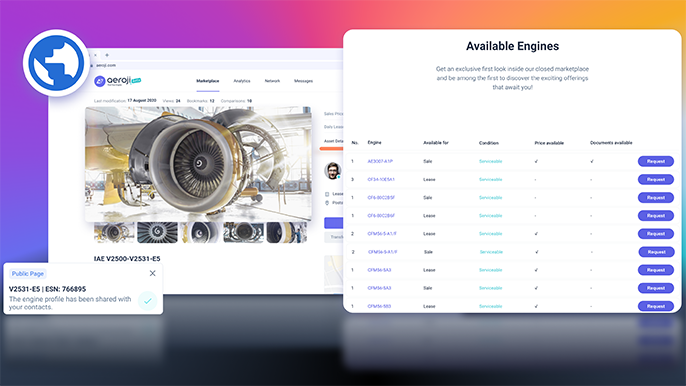
Aeroji has officially launched its digital platform for aircraft engine trading and professional networking following a successful beta test phase. The startup says it used the testing period to gain insights from more than 150 companies—including airlines, lessors and MROs—as it developed new features and functionalities for the platform.
“We are grateful to our early users for their feedback and we are excited to present our simple and easy-to-use service to the aviation world,” says Dimitri Martel, co-founder and managing director of Aeroji.
The platform is designed as a “social marketplace” for aero-engine leasing and sales, enabling users to set up profiles for themselves and their engine assets. Users can track, favorite and compare assets, chat with other users and upload documents related to shop visits or inspection reports.
Aeroji originally launched what was scheduled to be a four-month beta test in December 2020 with five companies: Aeras Aviation, Kellstrom Aerospace, KG Aircraft Rotables, LCI.aero and Onur Material Services. Martel says Aeroji decided to extend the testing period due to customers’ challenges with industry recovery and geopolitical issues such as the war in Ukraine. The longer testing period gave Aeroji the opportunity to grow its user base and fine tune the platform for their current needs and pain points.
Martel says one of the lessons learned during testing was that “engine aftermarket community pain points are weighted differently for companies dependent on fleet/portfolio size, business structure and operations.” He adds: “This required us to approach the pain points in a smart way to deliver the benefits, and we tailored certain features.”
For instance, Aeroji introduced company accounts with multiple users so teams can collaborate on management of asset portfolios, appointing specific people within the team as primary points of contact for certain assets. Martel says this feature helps companies if team members move roles or change responsibilities, “which we experienced a lot during the beta phase.”

Aeroji also further developed functionality for engine remarketing workflows, which was aimed at helping asset sellers control marketing channels and gain insights. Users can now choose to advertise assets to the exclusive closed community, the publicly available marketplace or share assets with only specific internal groups or external customers.
Martel says Aeroji differs from other aftermarket parts sales and trading platforms due to its focus on the engine segment, which is “far more complex than doing parts business or just a listing business for multiple items.” He says Aeroji is also focused on creating equal benefits for both sides of an engine transaction. “It’s about innovating around a pain point and addressing the two sides of the coin simultaneously,” he adds.
The platform is available via an annual subscription model. Aeroji has also created three company subscription plans with various tailored features and benefits, which Martel says gives customers “the freedom to choose the option that best fits their needs.”


